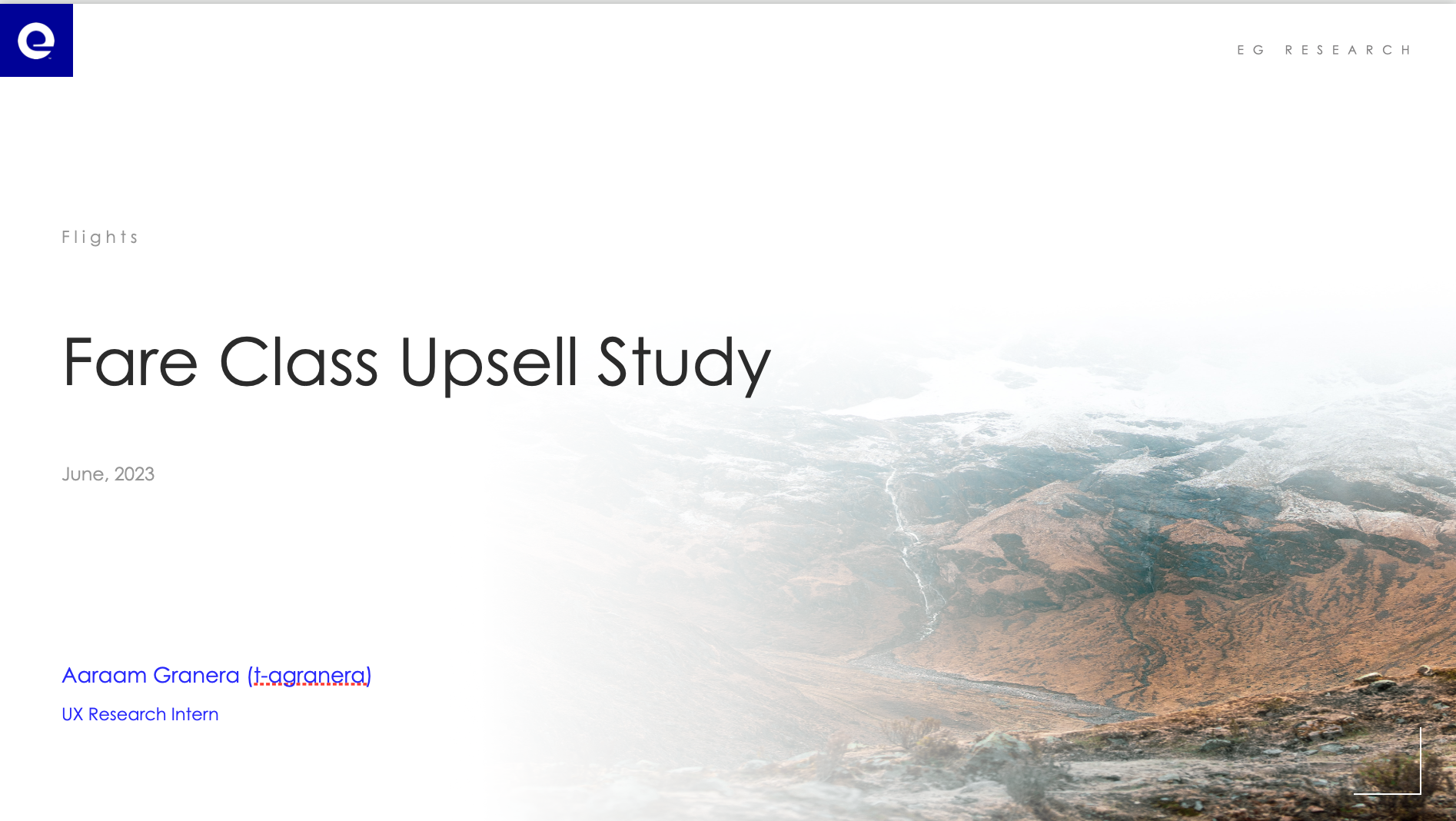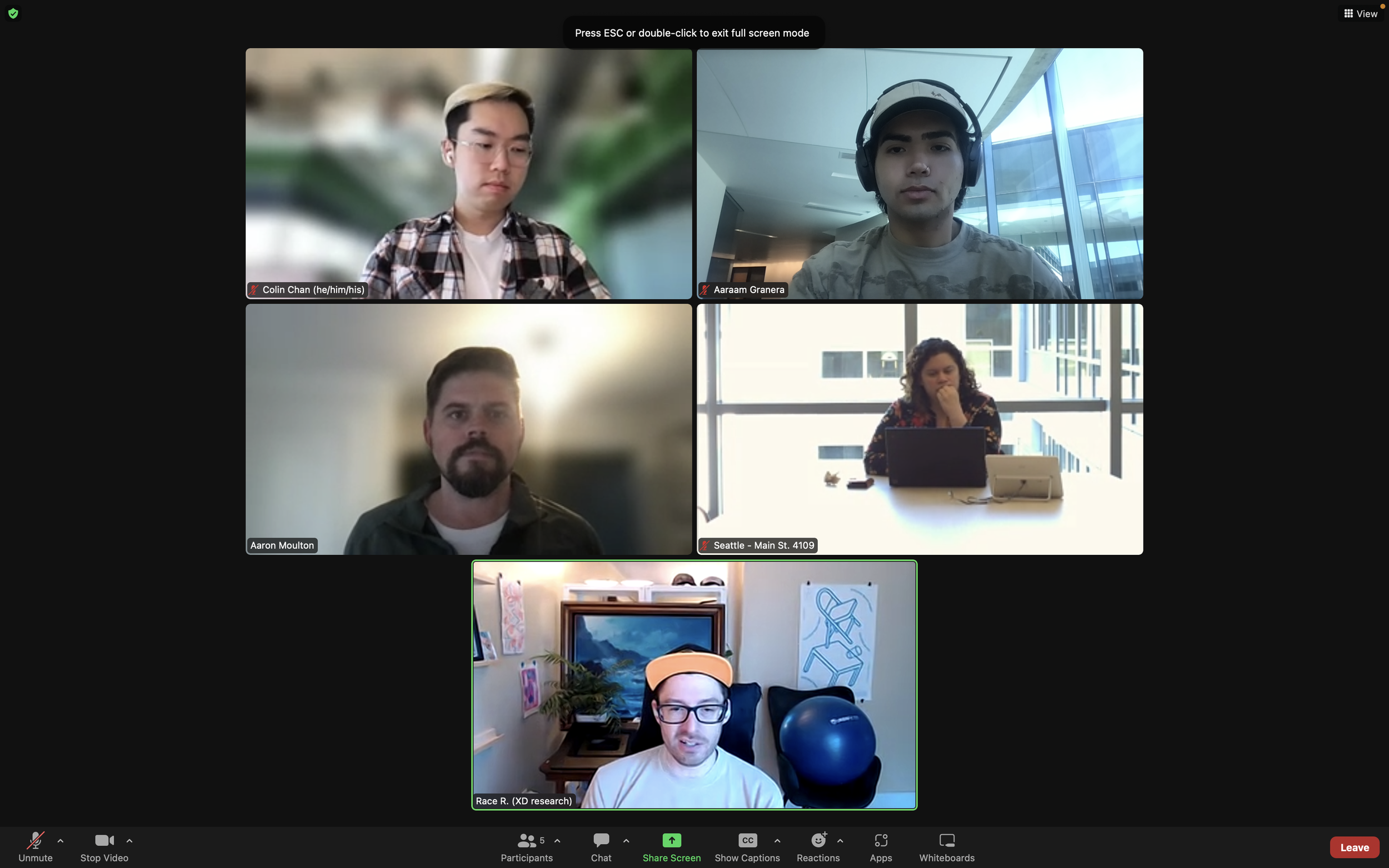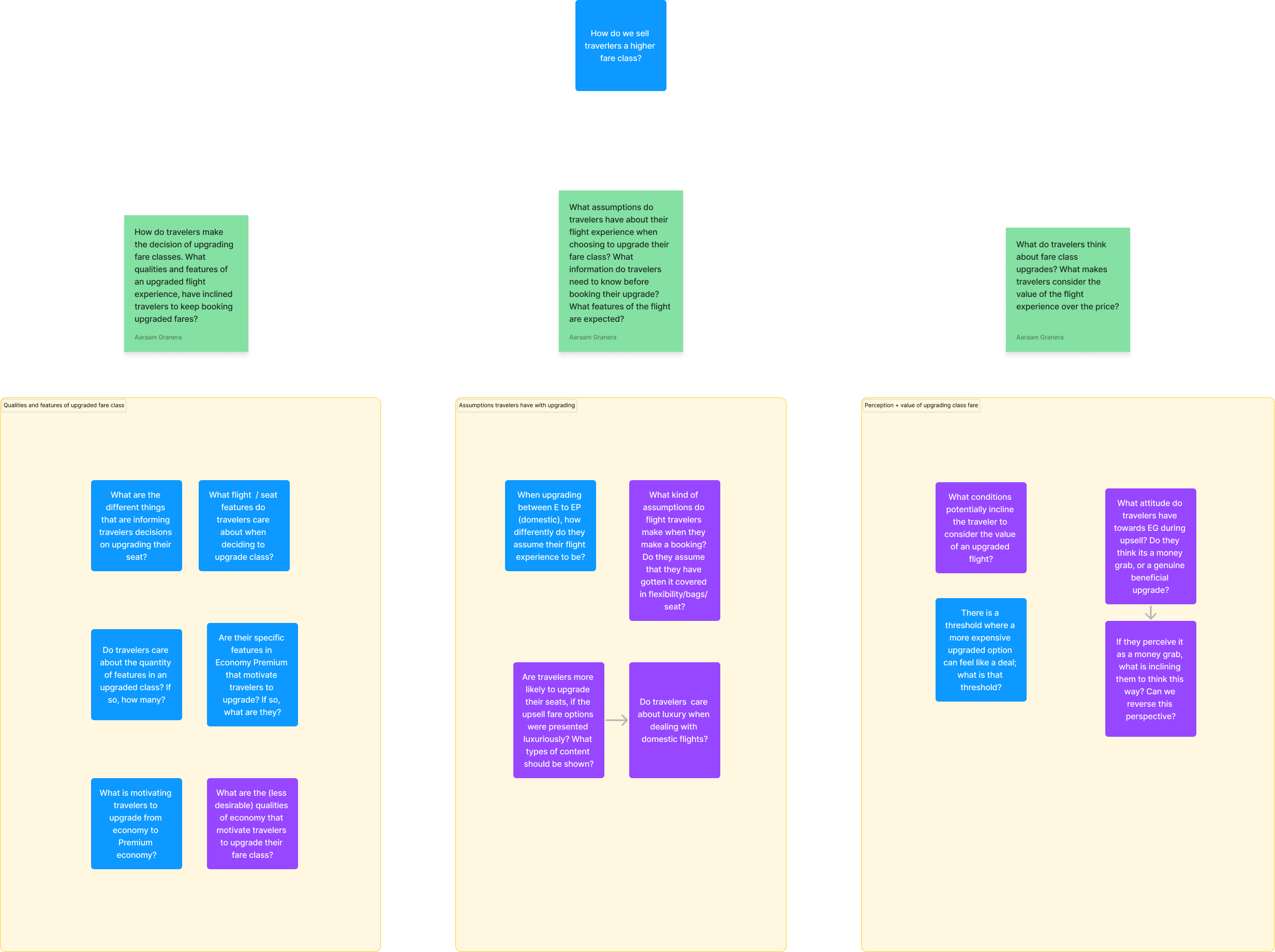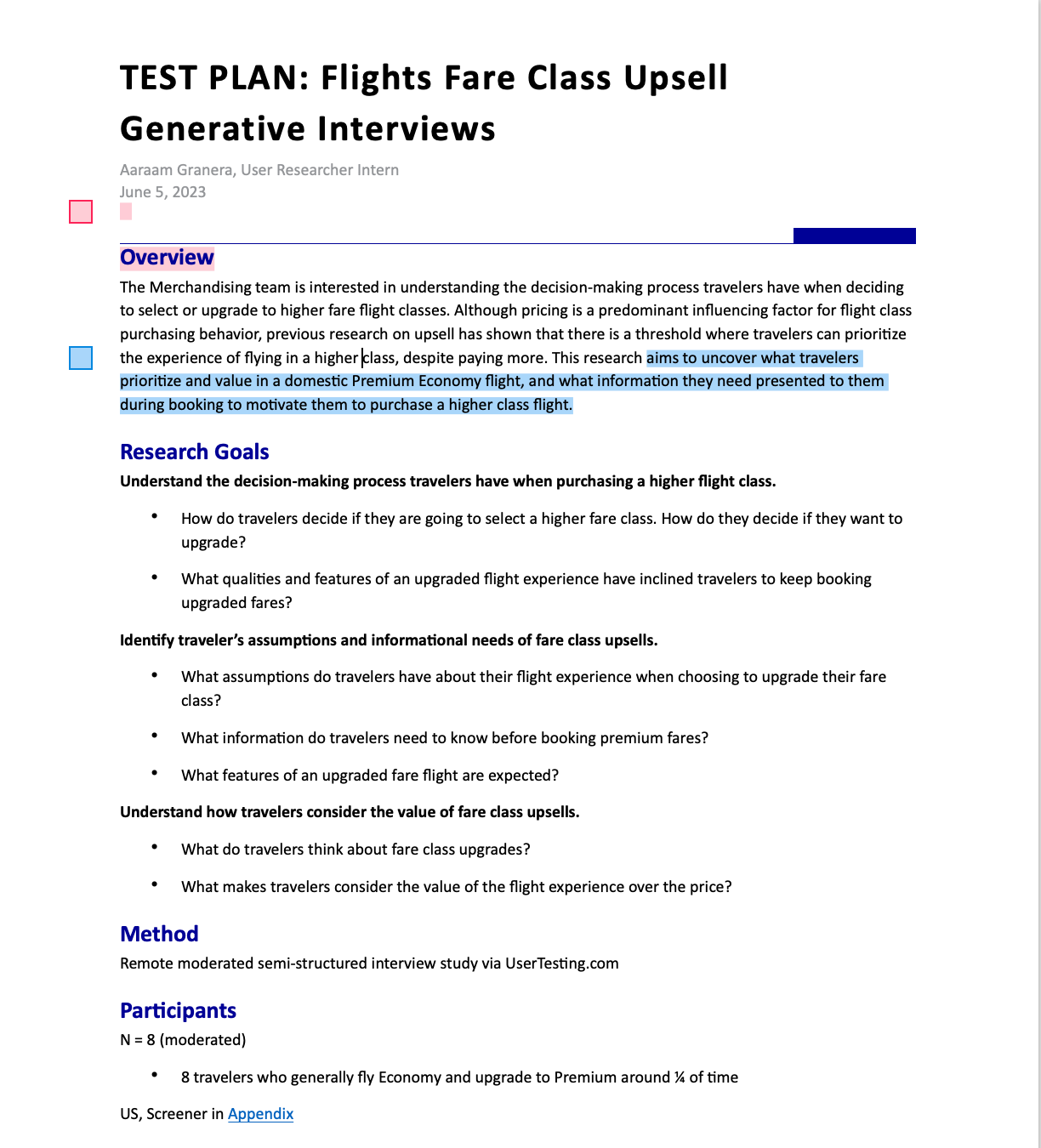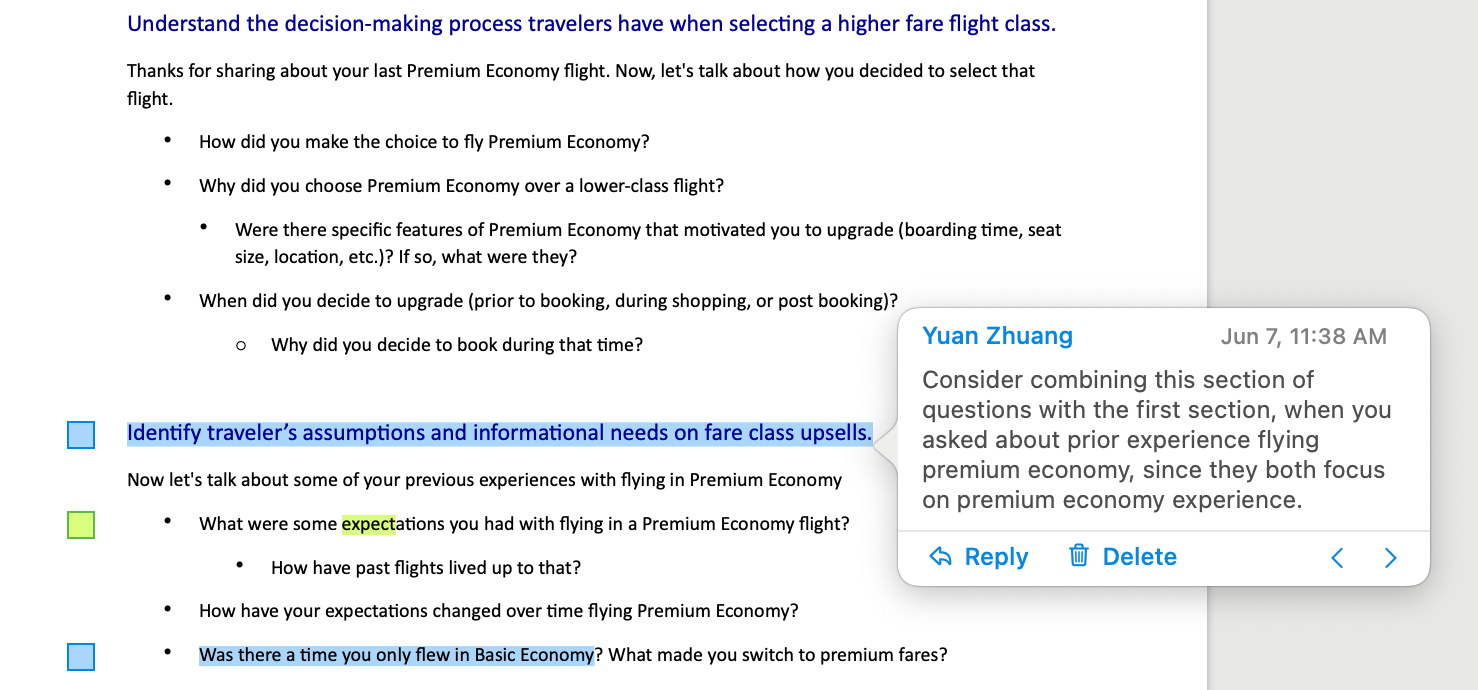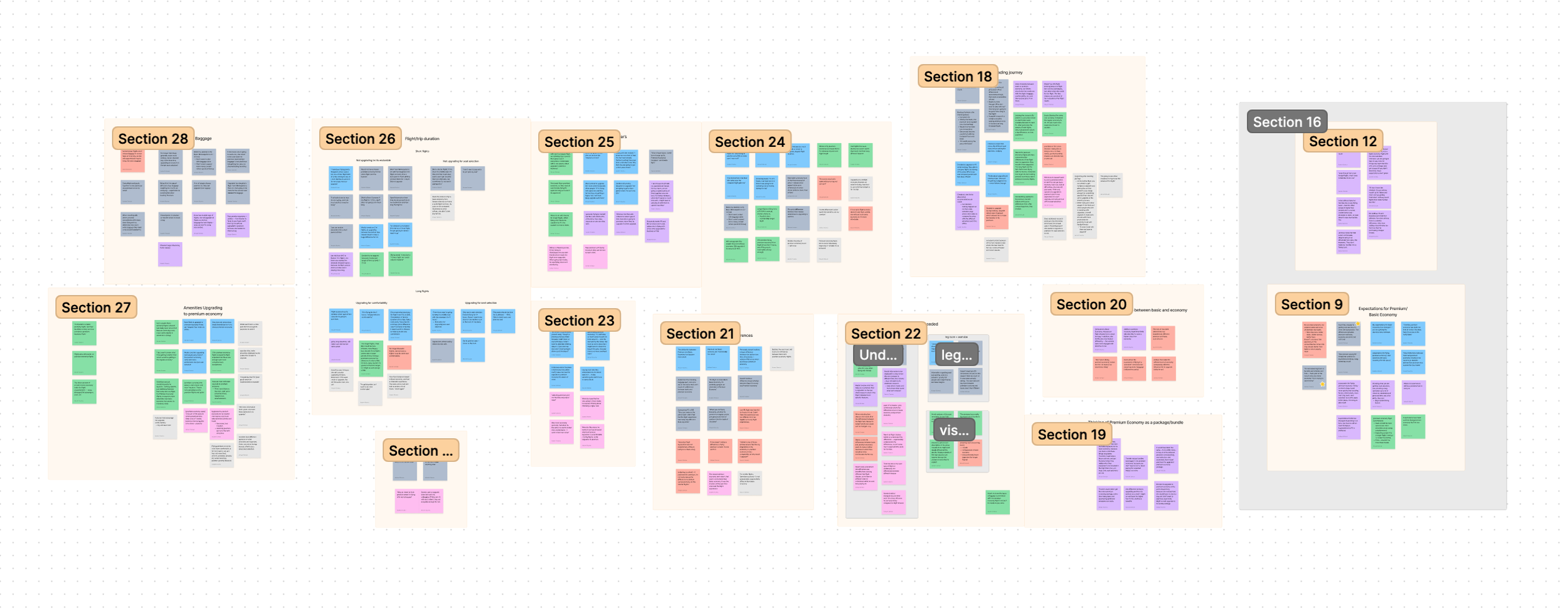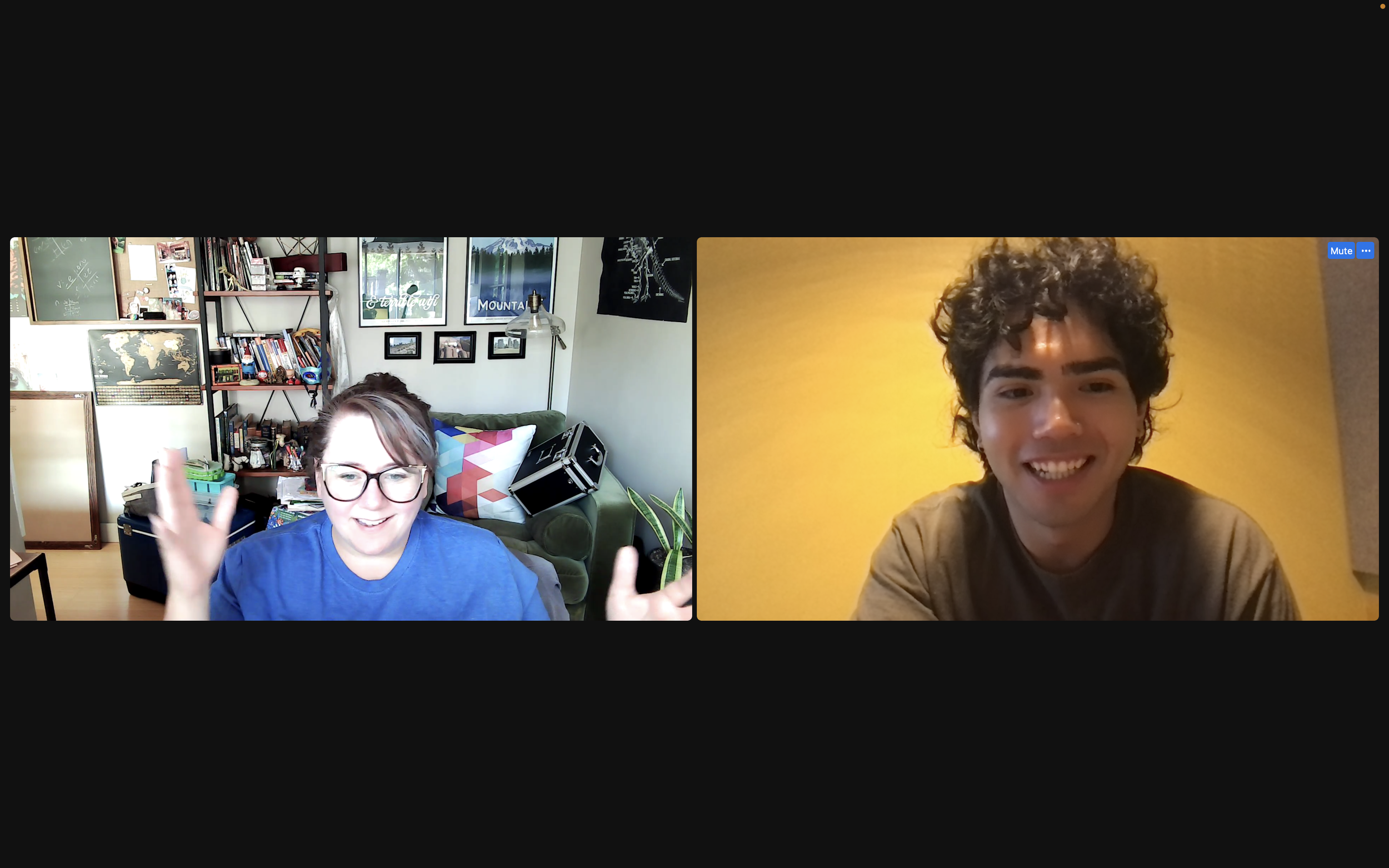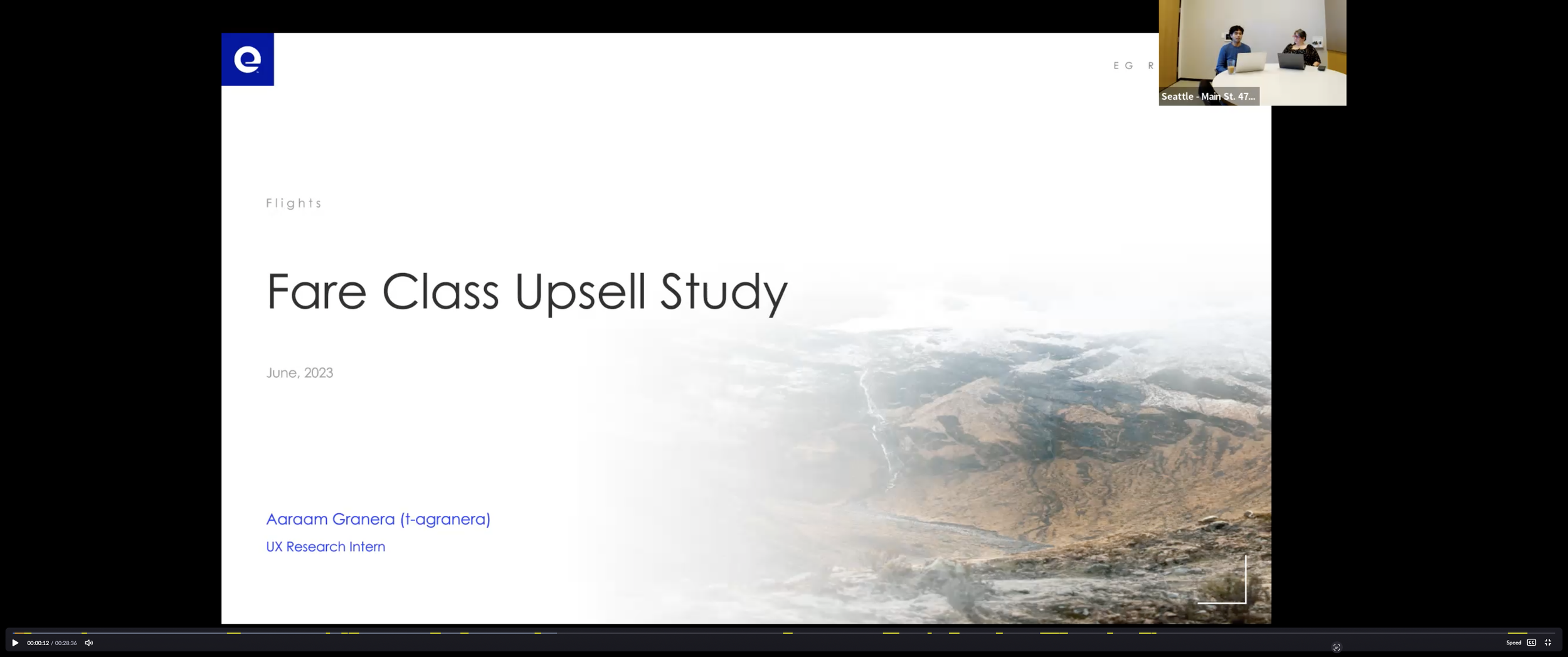Expedia
Exploring the air-travel booking decision process behind upgrading flight classes
Timeline: 4 weeks
Team: UX Researcher (me), Director of UX Design (Aaron Moulton), UX Designer (Colin Chan)
Discipline: UX Research, Interviews, Strategy
Tools: Figma, UserTesting.com, Microsoft 365
Project Overview:
As the UX Researcher on the Transportation Experience Design (XD) Team, I led the exploration of air-travel booking behavior.
The Transportation and Merchandising XD Team aimed to understand the decision-making process behind travelers' selection or upgrade to higher fare flight classes. Given the limited research in the "upsells" domain, our team ventured into this unexplored territory, specifically focusing on users' reluctance to switch from Basic Economy to Premium Economy. My research objective was to provide insights that would inform design principles and strategy planning for flight class upsells.
My research aimed to uncover
What travelers prioritize and value in a domestic premium economy flight
Travelers’ perceptions towards the economy fare class, and
What information is needed during booking to motivate them to purchase a premium economy flight.
This research was part of a larger merchandising workshop to kickstart the design and strategy of upsells in early July 2023.
For this project, I worked as the sole UX Researcher, collaborating closely with the Director of Experience Design and a UX Designer.
Work
TSA Pre-check, before we jump in…
With a Merchandising Workshop scheduled for early July, I had approximately four weeks to conduct my research. I had to be particular with the research method(s) I was going to use.
After meetings with my research manager and the design lead, I chose moderated user interviews as my research method. This approach allowed me to actively engage with users, listening to their flight experiences and probing when necessary to understand their perspectives and empathize with them.
Instead of opting for less demanding methods like unmoderated interviews via UserTesting.com or more exhaustive qualitative approaches like contextual inquiries, moderated user interviews provided a balance of depth and direct user interaction.
Rechecking the itinerary: a dive into previous research
Before jumping straight into qualitative research, I conversed a bit with the designers who needed research on this upsell space, via Slack and email to get a sense of the general problem space. I value everyone’s time, so prefer to lead stakeholder meetings with an agenda and a rough plan. Doing some brief preliminary research allows me to start forming a hypothesis and to reframe from jumping in — head first — to unknown UX unexplored terriorty
Embedding stakeholders with user research
It is imperative for me as a researcher to constantly keep stakeholders in the loop. We learn from our users as a team, and I make sure that all stakeholders feel that they are also contributing to the research. Empathy isn’t something we should use with users, it’s a tool we can use internally cross-functionally to homogenize our goals.
I led multi-weekly conducted stakeholder meetings to comprehend their inquiries about the Upsell problem space. The objectives of these meetings are to:
Listen to their prior work on upsells, filling gaps in knowledge.
Gather their design questions and preconceived hypotheses regarding air-travel booking behavior for upsells.
Present my study plan and seek feedback to align research goals and interview questions with their specific research needs.
After facilitating stakeholder interviews, I synthesized previous EG UX research on upsells to formulate my research plan.
Before data collection, I created a study plan with interview questions and a timeline. This was sent out for review by Senior UX Researchers for iteration and feedback
I conducted 8 moderated user interviews via UserTesting.com and invited stakeholders to observe live interview sessions to include them throughout the entire research process
Unmoderated script
After the interviews, I analyzed the interview data using a grounded theory approach. Throughout my analysis, I continuously updated stakeholders on pertinent research findings.
Insights
Impact <3
The specific insight, "Travelers are perceiving premium economy as a bundle rather than an experience," initiated a design exploration to reimagine Premium Economy Fares as a "peace of mind" package.
The readout was recorded, and the deck was shared with a Merchandising workshop, influencing strategy planning for 2H 2023 and 2024.
Research Report was added to the EG Research Insights Archive.
Reflection
This was one of two research studies that I conducted during my internship at Expedia Group, and I had a fantastic time learning about travelers! Growing up, I never had the opportunity to travel, which made it challenging at times to fully grasp and relate with users' air-travel experiences. However, that's where the beauty of empathy and UX research lies — through conversations and stories, I could listen to and share human experiences.
Here are some of my personal big takeaways from this experience:
Timelines and Research Trajectory: With the deadline set for the Merchandising Workshop in early July, I had to be intentional about my research planning. In a limited timeframe, I made thoughtful decisions about research methods to gain valuable insights efficiently. I balanced feasibility with the potential for impactful results.
Iterative Approach: Although my research planning needed to be realistic, I learned that it didn't have to be rigidly linear. Throughout the process, I continuously iterated my research plan, seeking input from stakeholders and collaborating with other UX Researchers for feedback and refinement.
Empowering the Traveler: Amidst the planning and timelines, I always kept the traveler at the center. Ensuring their voices were heard and their experiences taken into account remained a guiding principle throughout the research journey.
This experience taught me the significance of empathy, adaptability, and collaboration in UX research. It has shaped my approach to future projects and reinforced the idea that understanding and connecting with users is at the heart of creating meaningful and impactful design solutions.
